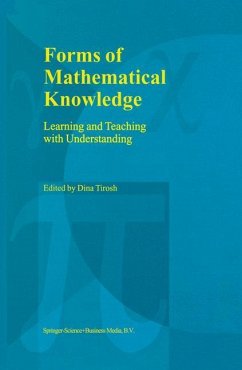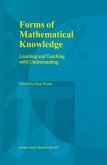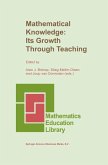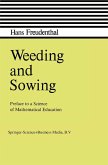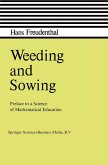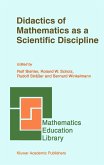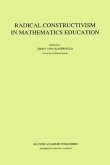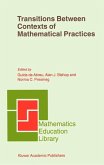What mathematics is entailed in knowing to act in a moment? Is tacit, rhetorical knowledge significant in mathematics education? What is the role of intuitive models in understanding, learning and teaching mathematics? Are there differences between elementary and advanced mathematical thinking? Why can't students prove? What are the characteristics of teachers' ways of knowing?
This book focuses on various types of knowledge that are significant for learning and teaching mathematics. The first part defines, discusses and contrasts psychological, philosophical and didactical issues related to various types of knowledge involved in the learning of mathematics. The second part describes ideas about forms of mathematical knowledge that are important for teachers to know and ways of implementing such ideas in preservice and in-service education.
The chapters provide a wide overview of current thinking about mathematics learning and teaching which is of interest for researchers in mathematics education and mathematics educators.
Topics covered include the role of intuition in mathematics learning and teaching, the growth from elementary to advanced mathematical thinking, the significance of genres and rhetoric for the learning of mathematics and the characterization of teachers' ways of knowing.
This book focuses on various types of knowledge that are significant for learning and teaching mathematics. The first part defines, discusses and contrasts psychological, philosophical and didactical issues related to various types of knowledge involved in the learning of mathematics. The second part describes ideas about forms of mathematical knowledge that are important for teachers to know and ways of implementing such ideas in preservice and in-service education.
The chapters provide a wide overview of current thinking about mathematics learning and teaching which is of interest for researchers in mathematics education and mathematics educators.
Topics covered include the role of intuition in mathematics learning and teaching, the growth from elementary to advanced mathematical thinking, the significance of genres and rhetoric for the learning of mathematics and the characterization of teachers' ways of knowing.

